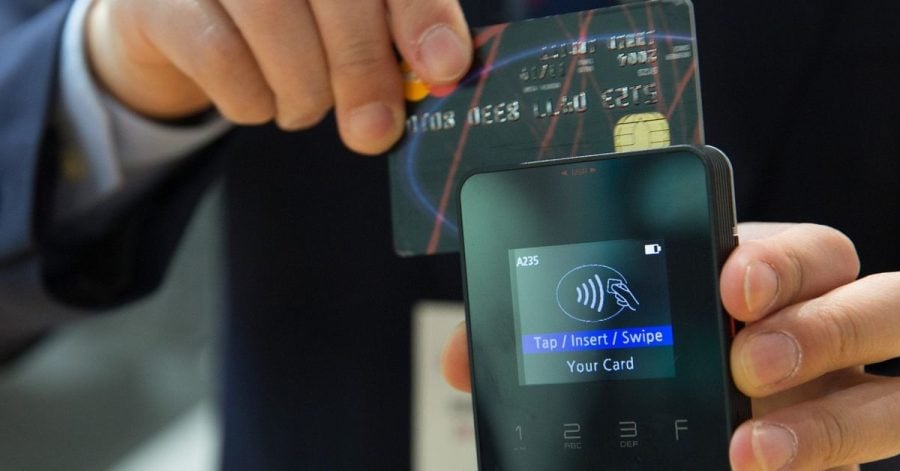The fintech industry has been disrupting traditional banking and financial services for quite some time now, and one of the areas where this disruption is most visible is how fintech companies are changing credit and debit cards.
Many of these companies are changing the way we interact with these cards, offering innovative solutions that provide greater convenience, flexibility, and security. From digital wallets and mobile payments to virtual cards and real-time rewards, fintech companies are changing the credit and debit card landscape in ways that we never thought would be possible, and this trend is only set to continue.
In this article, The Recursive explores the ways in which fintechs are changing credit and debit cards, and how these changes are impacting consumers, financial institutions, and the industry as a whole.
What are Fintech Cards?
Fintech cards are financial products that are issued by fintech companies rather than traditional banks, designed to provide consumers with more innovative and flexible solutions for managing their finances. Some examples of fintech cards include the Revolut card, the Venmo credit card, and the Robinhood debit card.
Fintech cards often come with features such as real-time rewards, no fees, and instant issuance, which make them an attractive option for consumers who are looking for more convenience and flexibility. In this regard, fintech cards are changing the credit and debit card industry by offering a more digital and user-friendly approach to managing money.
Examples of Fintech Cards
There are many different types of fintech cards available, each with their own unique features and benefits. Some of the most popular fintech cards include the Apple Card, the PayPal Cashback Mastercard, the Amazon Prime Visa Signature, and more. Regional examples such as Payhawk’s corporate Visa cards are also a great example, helping users automate manual processes and much more.
These cards offer a range of benefits such as cashback rewards, no fees, and real-time spending notifications. Fintech cards are often designed with the user in mind, offering an intuitive user interface and mobile app that allows for easy management and control of the card.
Why Fintech is Getting into Payments
Fintech companies are getting into payments because they see an opportunity to disrupt the traditional banking industry and offer consumers a better way to manage their finances. By leveraging technology, fintech companies can also offer faster and more convenient payment solutions that tend to the needs of modern consumers.
Additionally, the rise of e-commerce and mobile payments has created a demand for new payment options, which fintech companies are uniquely positioned to provide. By offering more flexible and innovative payment solutions, fintech companies are changing the way we think about credit and debit cards.
The rise of digital wallets has been a significant disruptor to the traditional card business, changing the way we think about payments and how we manage our finances. As the industry continues to evolve, it’s becoming increasingly clear that the key to success lies in the ability to seamlessly connect these two worlds.
“For many years the card business was all about this plastic, which you have to put in your pocket. And then if you have more than one care card, this will become a problem and you don’t know which one to use. So now, it didn’t just happen that cards disappeared and the digital wallet appeared. It’s always in the transition process, and through this transition process it is always important who is the provider that can actually connect these two worlds,” Igor Strejcek, managing director of Microblink, a Croatian company specialized in data extraction technology that fintech and banking industry companies use, tells The Recursive.
According to Strejcek, the transition would eventually lead to a merge that could potentially also mean the end of cards as we know them.
“Many companies in the fintech world are really doing a great job and now banks are also competing because they see that it’s really important. So we can see that this will be a merge and that I think next generations will be asking themselves questions like “What are cards?” But that gapping technology is important for this transition to be smooth because it cannot happen overnight,” Strejcek points out.
How Fintech Could Change Your Next Card
Fintech companies are changing the credit and debit card industry by offering innovative solutions that provide greater convenience, flexibility, and security. For example, some fintech cards offer real-time rewards, instant issuance, and mobile payments. Additionally, fintech cards often have lower fees and more transparent pricing structures.
Aircash is the first Croatian fintech platform, with a solution that includes a digital mobile wallet through which users can make instant deposits, withdrawals, payments and money transfers.
According to the company’s founder and CEO Hrvoje Cosic, while fintech companies are changing debit and credit cards, the existing business models of the banks are still there and will probably stay unchanged for a long time.
“I’d say fintech is changing debit and credit cards just a little bit. They’re changing the business models by adjusting them and giving add ons to existing business models. I cannot say that fintechs are threats to the banks, it kind of fits their niches and they can help and open up some new business models for example. So I would definitely say that banks and fintechs should cooperate and this will happen more and more in the future,” Cosic tells The Recursive.
And as fintech continues to innovate, we can expect to see even more changes to the way we use credit and debit cards, especially since many companies are also exploring new payment technologies such as blockchain and digital currencies, which could further transform the payment landscape.
According to Ruben Nielsen, Vice President of Sales & Business Development – Nordic at global payment provider Finaro, with EU and local regulations such as PSD2, cash-legislation, and ethical finance reshaping the market, there are challenges to keeping credit cards attractive and needed.
“Most Neobanks and Fintech companies are looking into how they can benefit from a full payment eco-system, where everything related to payment and software is consolidated – such as issuing credit-cards, providing bank accounts, acquiring services, gateway services, access to wallets, and more – this is how companies can take ownership, and make acquiring into a new revenue stream as a payment service provide,” Nielsen tells The Recursive.
Potential Pitfalls for Consumers
While fintech cards offer many benefits, there are also potential pitfalls that consumers should be aware of. For example, some fintech cards may not offer the same level of fraud protection as traditional banks.
Furthermore, some fintech companies may not be as established as traditional banks, which could pose a risk in the event of a financial crisis.
Therefore, consumers should carefully review the terms and conditions of any fintech card they are considering, and ensure that they understand the risks involved. It’s also important to choose a reputable fintech company that has a proven track record of providing reliable and secure financial services.
How to Choose a Good Fintech Card
When choosing a fintech card, consumers should consider factors such as fees, rewards, security, and customer service. It’s important to compare multiple options and read reviews from other users to get a sense of the overall user experience. Additionally, consumers should review the terms and conditions carefully to ensure they understand the fees and limitations associated with the card.
Overall, choosing a good fintech card requires careful research and consideration, but the rewards can be significant in terms of convenience, flexibility, and savings. By using a fintech card that meets their specific needs and preferences, consumers can take advantage of the many benefits that fintech companies have to offer.
Conclusion
All of this suggests that fintech companies are changing the credit and debit card industry for the better by providing more accessible, convenient, and secure solutions for managing finances. As the industry continues to evolve, we can expect to see even more innovation and disruption from fintech companies in the future.
For consumers, this means more options and greater flexibility in managing their money, as well as the potential for new technologies that could further enhance the payment experience.
“The market is constantly changing and new payment methods like Buy Now, Pay Later (BNPL) and Open Banking are still growing globally. Neobanks and fintech companies are changing the status quo by providing holistic offerings that enable them to be agnostic to the market and always provide what is requested.” Finaro’s Nielsen concludes.








